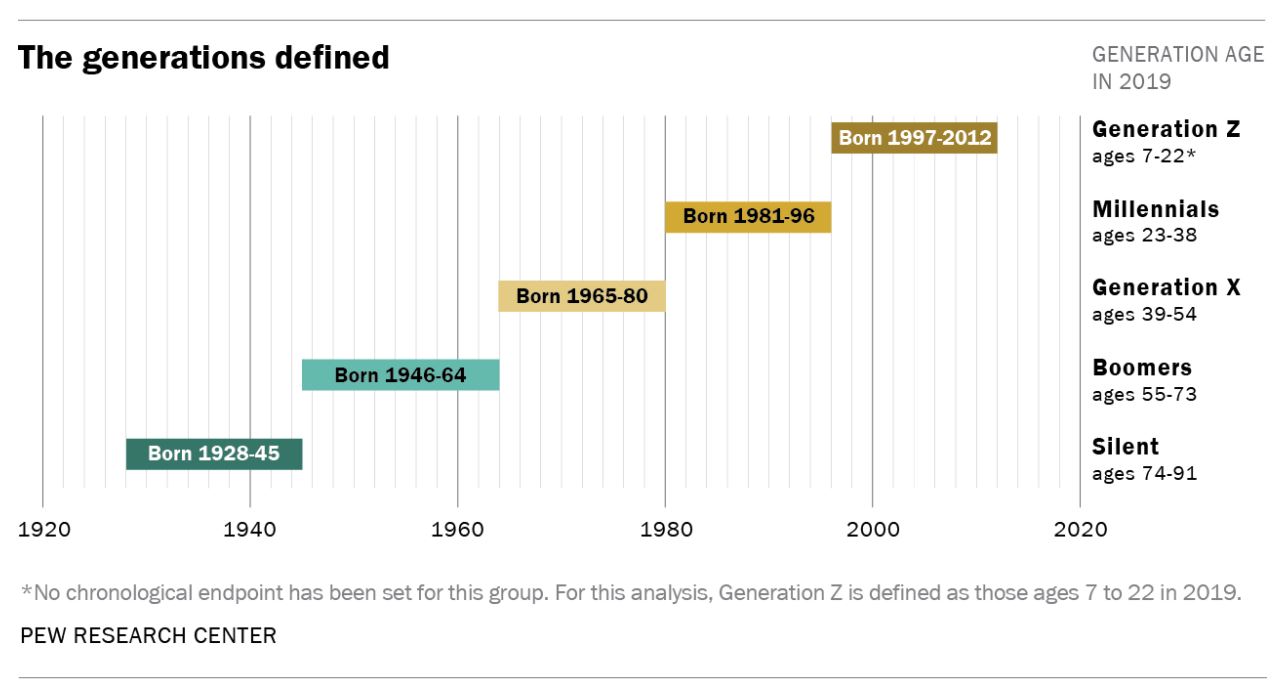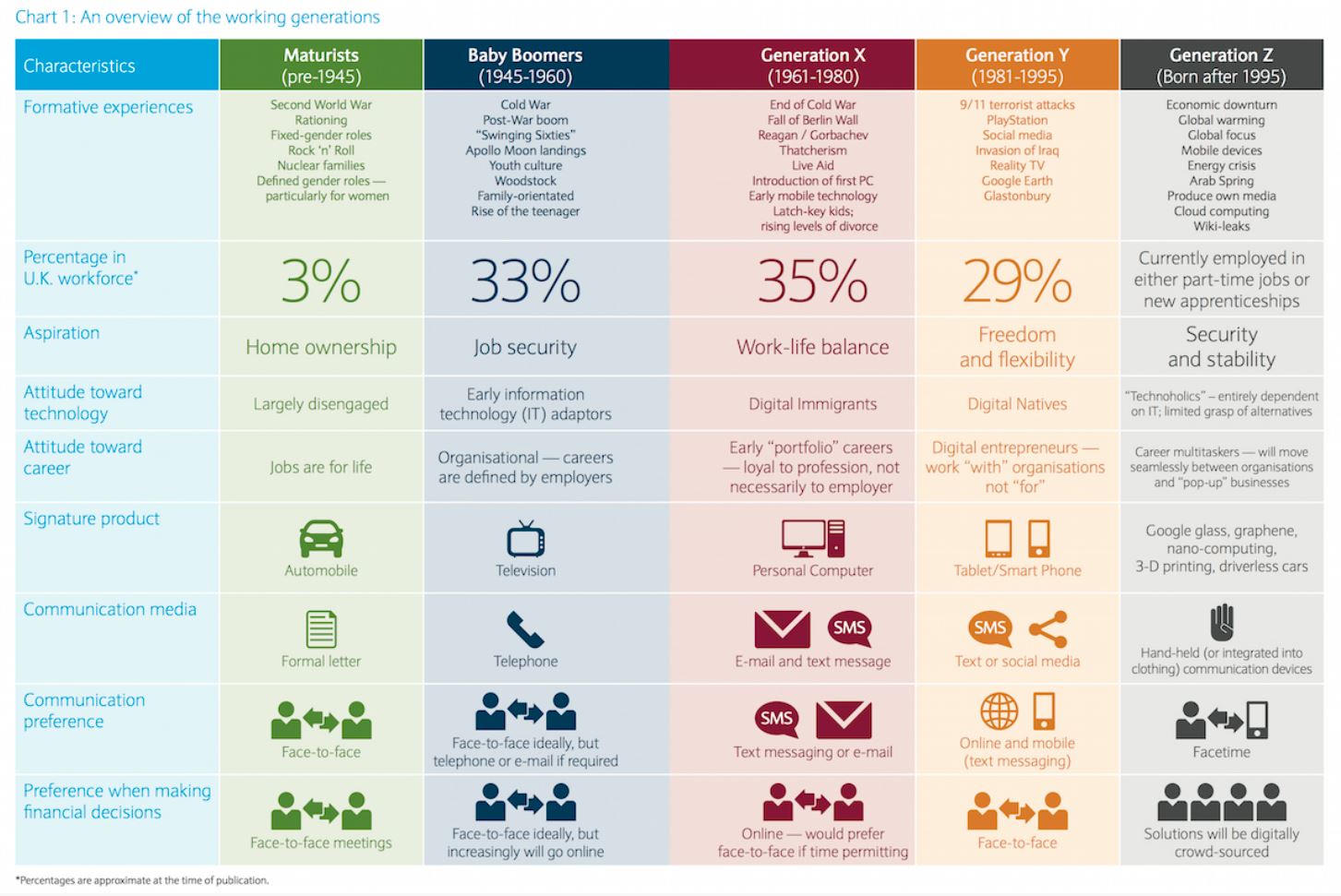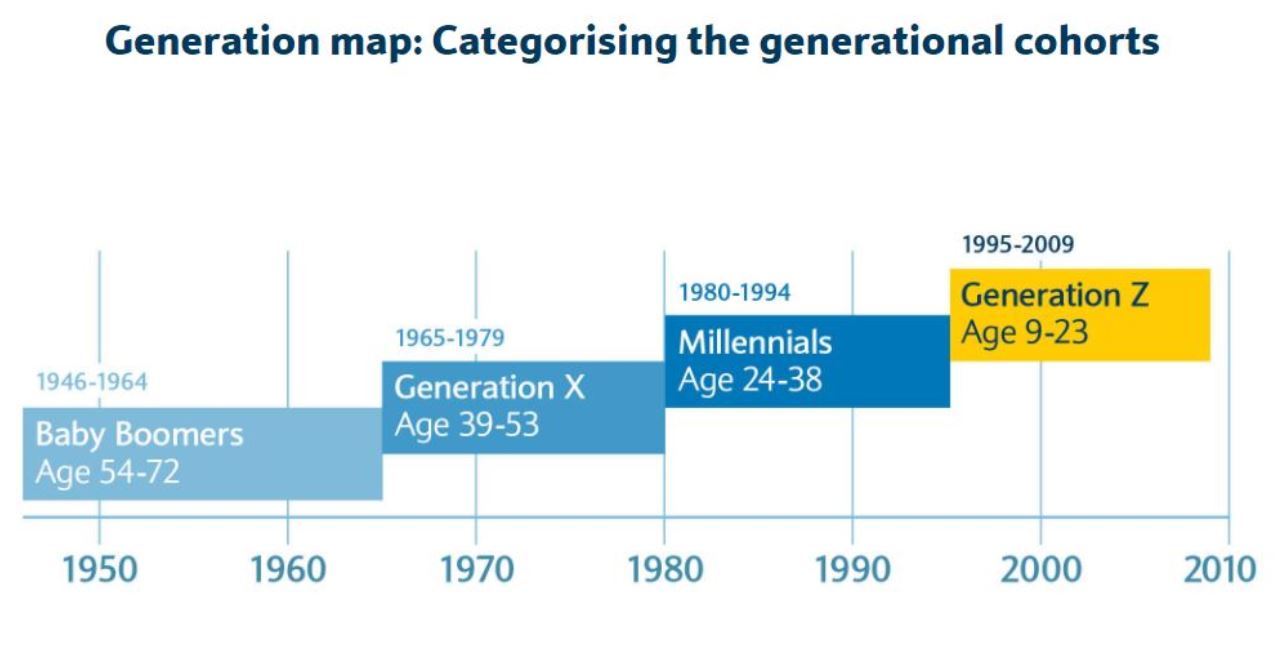I have long been fascinated by generational differences, especially in terms of how they show up in the workplace. I was born in 1980, which means I straddle two generations (Gen X and Millennials). There is no authority of note on this topic, so ranges for each generation can vary a bit. For example, in this chart, my birth year places me at the beginning of the Millennials group (chart from 2018).
However, on this chart my birth year of 1980 places me at the tail end of Generation X (chart from 2019).

The reality is that I am what’s referred to as a “Cusper“, which is someone born on the edge of two generations who has a blend of both generation’s characteristics. If you were born between 1977 and 1983 then you, too, may be a Gen X/Millennial Cusper. While researching this post, I came across some other awesome names for Gen X/Millennial Cuspers. They are too great not to share, so here goes: Xennials, The Oregon Trail Generation, and Geriatric Millennials.
The chart below can help me explain this better. I associate with the Formative Experiences and Cultural Symbols (Music, Celebrities) of Generation Y (Millennials) but in nearly every other category I can relate more to Gen X, especially in terms of how I behave in the workplace and my preferred means of communication.

Today I’m writing specifically about Gen X/Millennial Cuspers, but this hybrid tendency would be applicable to Silent Generation/Baby Boomers Cuspers and Baby Boomer/Gen X Cuspers as well. There is, however, something very unique the Micro-Generation of Gen X/Millennial Cuspers — they spent their formative years immersed in the transition from analog to digital means of communication. Kids born after 1984 are digital natives — they’ve never known a world without tech. And those born in 1976 and before are digital adapters — they had to learn how to use technology as an adult. I love how Erica Dharwan explains the differences in this article she wrote for Medium. Here’s an excerpt:
Digital natives have come of age steeped in the conventions of digital body language. They assume the signals and cues that are all around them. Signals they find “obvious†are invisible to adapters — text messages with formal punctuation raise a red flag, unplanned phone calls are intrusive, and emoji, far from being childish, help communicate a message’s intended tone.
Digital adapters have had to learn digital body language (the subtext of digital messages) as adults. For many, it can be as hard as learning a second language. Some become fluent. Some only have basic proficiency. Many are in between, somewhat like digital ‘immigrants’ to a new country.
Should you send a reply-all email, quick text or schedule a Zoom? A digital adapter is likely to perceive the same choice of medium differently than a native. One’s expressions of joy, or considerateness, can be another’s expressions of rudeness.
Gen X/Millennial Cuspers are vital in the workplace because they bridge the divide between these two generations and their vastly different communication styles. Cuspers are familiar (and comfortable) with both styles of communication and are better at knowing when to use which style. This paragraph from Generations.com articulates their value beautifully:
Our research shows that Cuspers are strong mediators and are often able to see generational clashes from the perspective of two generations in a way that others often cannot. They serve as translators, peacemakers, and troubleshooters. Their ability to act as generational liaisons can be invaluable to organizational communication.
I have always been a strong communicator and have even pursued advanced training in communicating (my Life Coach Training). I’ve never reflected much on why communicating effectively is so important to me (and such a big part of who I am). Now I’m wondering how much of it has to do with being a Cusper. What I do know for certain though is that I’ll be proudly playing up my value as a generational liaison in my next job interview! I had never realized what a valuable asset this is in the workplace. I hope you enjoyed reading it as much as I enjoyed researching and writing it!



